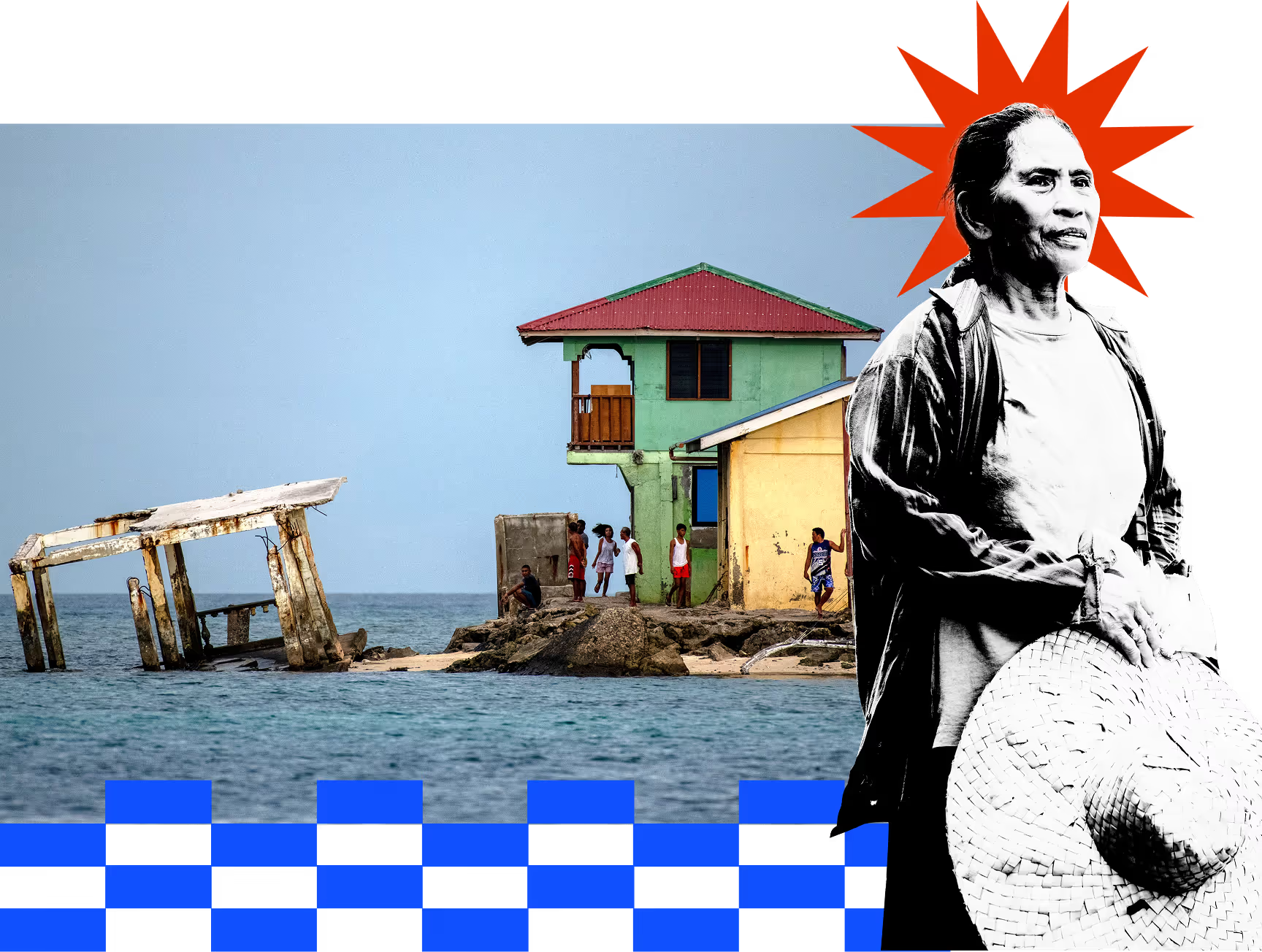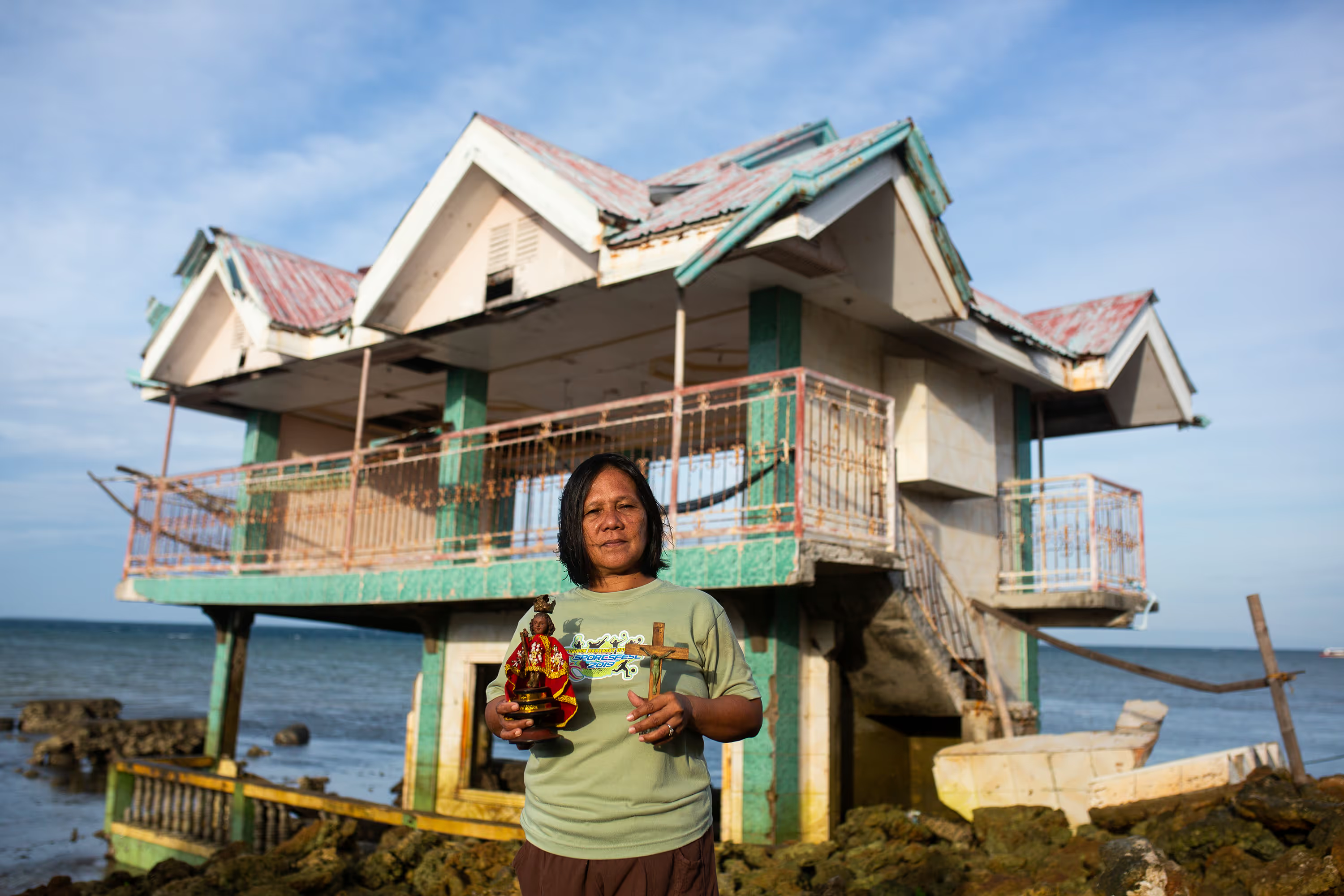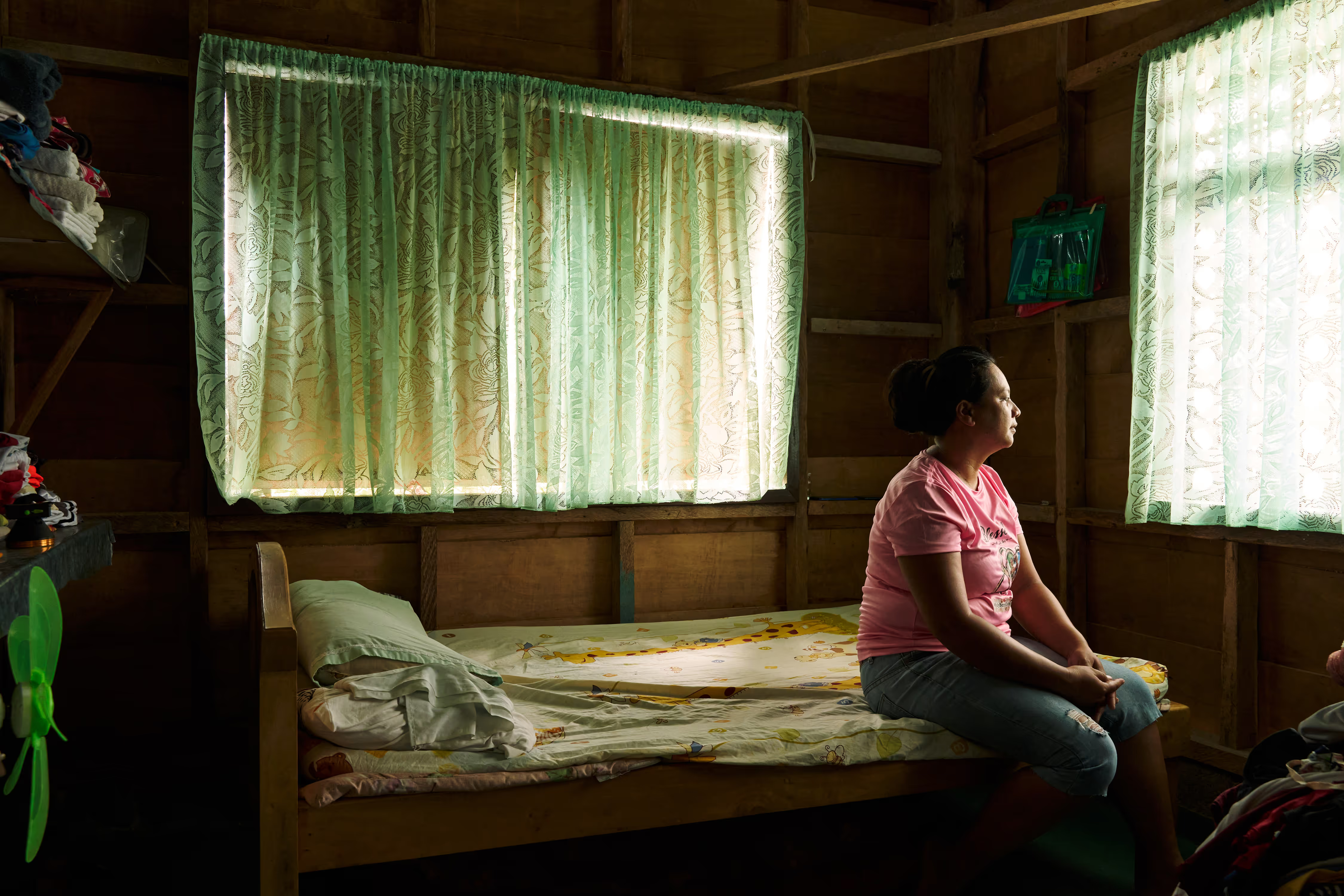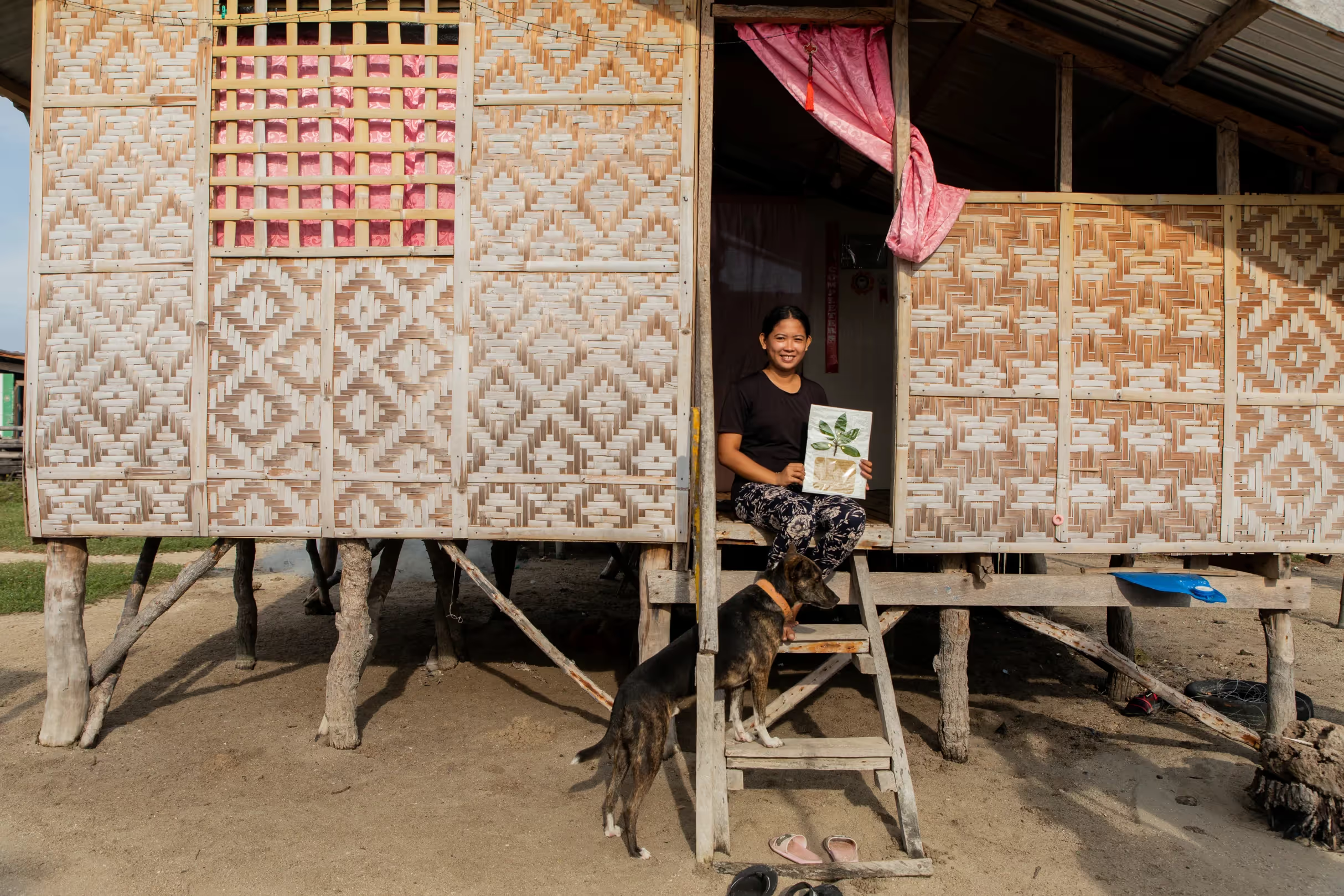Home is worth fighting for.

Typhoon odette
Super Typhoon Odette was the 15th storm to hit the Philippines in 2021, and by far the strongest. Climate change is making unnatural disasters like these happen more often and with greater power.
But they’re fighting back. It’s time for change – stand with them.
Meet the claimants
103 ordinary Filipinos are demanding justice for themselves and for loved ones lost in Typhoon Odette.

About the legal case
The aim of the legal case is to first and foremost secure justice for communities in the Philippines.
This justice includes compensation for personal injury and death, damage to their homes and property, and breach of their constitutional rights to a healthy environment.
Backed by UK law firm Hausfeld, this case will be filed in the UK, where Shell is based, but will follow Philippine law since the harm occurred there. This case puts the power in the hands of communities in the Global South. They are demanding justice for the harm caused by corporate greed and injustice.

Meet the Defendant: Shell
Shell has known for decades that their actions fuel climate change and harm people and the planet. Instead of changing course, they’ve only ramped up their operations.
The claimants allege that since 1965 at the latest, Shell knew that burning fossil fuels was increasing the concentration of greenhouse gases in the atmosphere, and that it would lead to changes in the climate. In 1988, Shell was warned that climate change would have “dramatic” effects, especially on communities in the Global South. But they kept this analysis hidden and carried on.
Shell’s history of lies and disinformation about climate change is well-documented. This evidence, along with new scientific research, provides a strong basis for this case to hold them accountable for their responsibility and liability for the damage caused by Super Typhoon Odette.
How Shell is fuelling unnatural disasters
New research shows that the likelihood of a disaster like Typhoon Odette in the Philippines has roughly doubled due to current warming.
Extreme weather events like Super Typhoon Odette aren’t random; climate change makes them stronger and more likely. Leading international scientists from the Centre for Environmental Policy, the Grantham Institute and the University of Sheffield have found that human-induced climate change has likely more than doubled the risk of combined high winds and heavy rainfall like those which happened during Super Typhoon Odette.
This new research supports the findings from the Philippine Commission on Human Rights, which says that companies like Shell are partly to blame for the rising number and severity of unnatural disasters like Super Typhoon Odette.








.avif)






